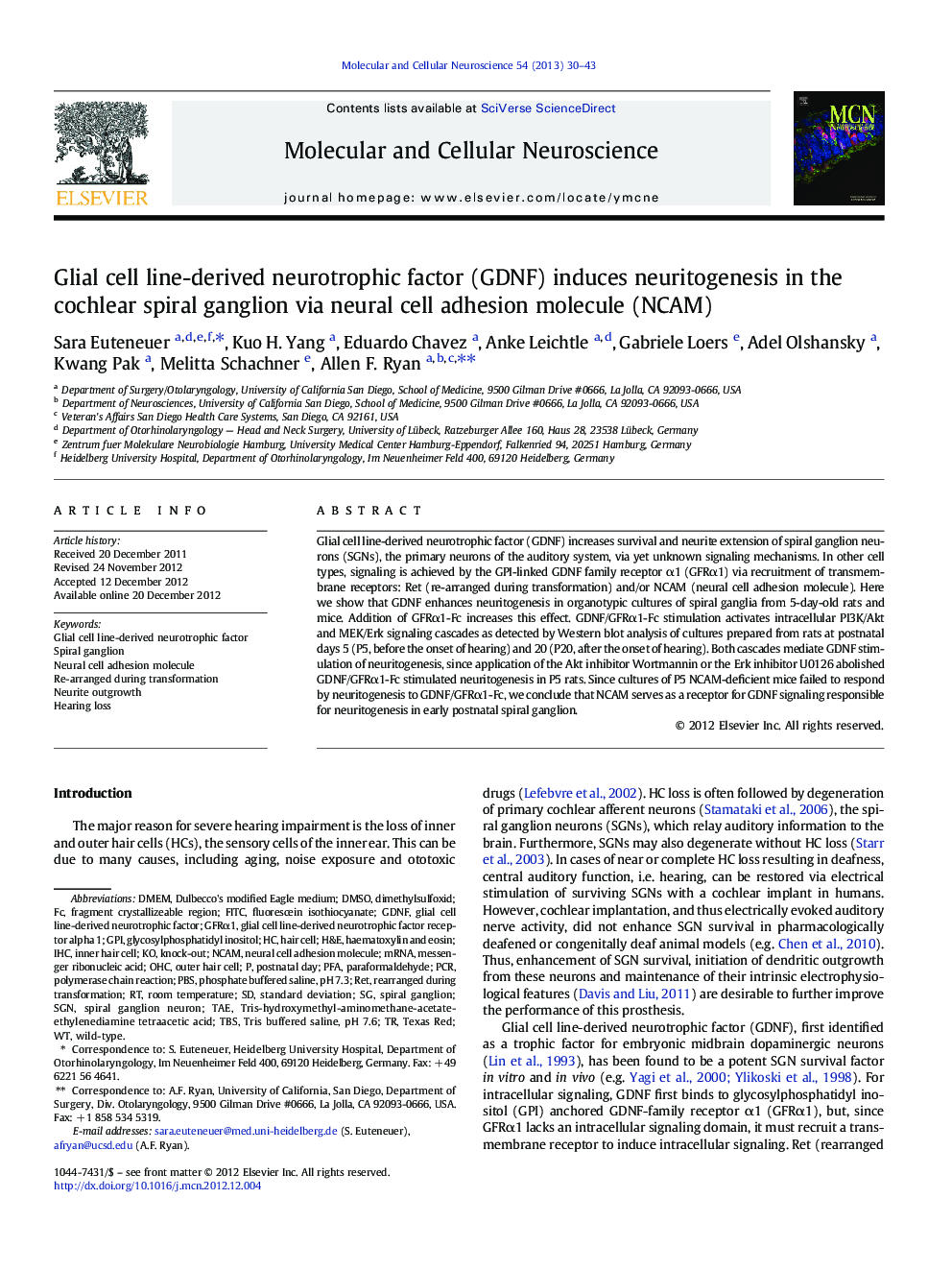| Article ID | Journal | Published Year | Pages | File Type |
|---|---|---|---|---|
| 2198540 | Molecular and Cellular Neuroscience | 2013 | 14 Pages |
Glial cell line-derived neurotrophic factor (GDNF) increases survival and neurite extension of spiral ganglion neurons (SGNs), the primary neurons of the auditory system, via yet unknown signaling mechanisms. In other cell types, signaling is achieved by the GPI-linked GDNF family receptor α1 (GFRα1) via recruitment of transmembrane receptors: Ret (re-arranged during transformation) and/or NCAM (neural cell adhesion molecule). Here we show that GDNF enhances neuritogenesis in organotypic cultures of spiral ganglia from 5-day-old rats and mice. Addition of GFRα1-Fc increases this effect. GDNF/GFRα1-Fc stimulation activates intracellular PI3K/Akt and MEK/Erk signaling cascades as detected by Western blot analysis of cultures prepared from rats at postnatal days 5 (P5, before the onset of hearing) and 20 (P20, after the onset of hearing). Both cascades mediate GDNF stimulation of neuritogenesis, since application of the Akt inhibitor Wortmannin or the Erk inhibitor U0126 abolished GDNF/GFRα1-Fc stimulated neuritogenesis in P5 rats. Since cultures of P5 NCAM-deficient mice failed to respond by neuritogenesis to GDNF/GFRα1-Fc, we conclude that NCAM serves as a receptor for GDNF signaling responsible for neuritogenesis in early postnatal spiral ganglion.
